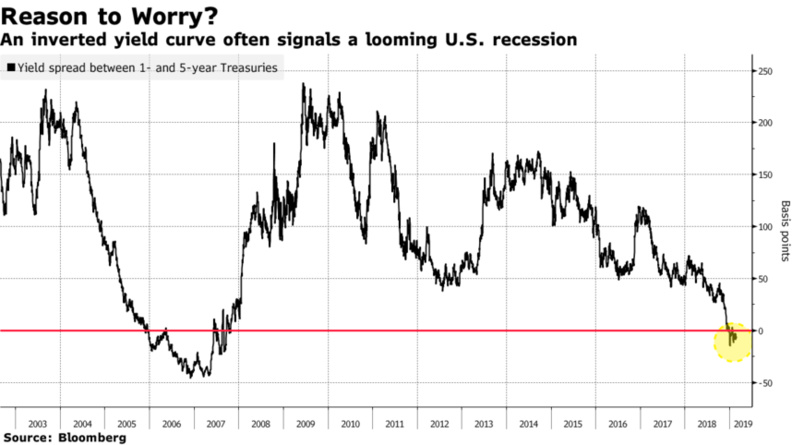IBM World wire – the inevitable rise of Centralized Blockchains
26/03/2019
In the last four weeks, we have had JPM Coin announcement by JP Morgan, followed by Facebook’s ambitions to plug crypto payments into Whatsapp, and now IBM have announced the launch of World wire – a cross border payments platform on Stellar protocol. I tried to call them permissioned Blockchain, but couldn’t resist calling them "Centralized".
When I blogged about JPM Coin a few weeks ago, and how it could affect both Ripple and SWIFT, one unanimous comment I received was that JPM Coin couldn’t be considered a cryptocurrency. I have had several philosophical arguments over the years on why a permissioned Blockchain, preferred by enterprises, do not/do qualify as Blockchain as they are centralized.
For all practical reasons, we have seen the rise and fall of decentralized Blockchain. Most of us would like a utopian decentralized world without these too-big-to-fail firms throwing their weight around, or central regulators calling the shots, or tech giants monopolizing industries with their data might. However, it is hard to make the leap from a highly centralised system (we have today) to a new decentralised way – not just philosophically, but also pracically.
The focus has shifted from ICOs to the more conservative STOs, with stable coins showing up in most use cases. Several startups I have met in the last few months have even stopped using the term ‘ICO’. The resurgence of Blockchain is now being led by big firms like IBM, Facebook and JP Morgan. I wouldn’t be surprised if this becomes the norm in 2019, where we see more Blockchain based production use cases from enterprises.
IBM have been working in partnership with the Stellar Foundation for quite sometime now. When I spoke to Lisa Nestor, the Director of partnerships at Stellar in Q4 2018, she mentioned that they had a strategic partnership with IBM. She stressed the importance of working closely with incumbent organisations across industries to make Blockchain usage mainstream.
We’ve created a new type of payment network designed to accelerate remittances and transform cross-border payments to facilitate the movement of money in countries that need it most
Marie Wieck, General Manager, IBM Blockchain
As a result the IBM World wire, focused on the cross-border payments market has already enabled payment locations in 72 countries, with 48 currencies and 44 banking endpoints. It supports Stellar Lumens and a USD based stablecoin – thanks to their work with Stronghold. The network will also support stablecoins issued by several of its consortium banks. The list includes stablecoins based on Euro, Indonesian Rupiah, Philippine Peso, Korean Won and Brazilian Real. How will this affect Ripple?
Credit Ripple for the vision of using a digital asset in order to enact immediate settlement with finality. I think their implementation followed one path. Our implementation is a little bit different. We are not the issuer of an asset. In fact, what we believe is that there should be an ecosystem of a variety of digital assets that provide the settlement instruments that enable these cross-border payments.
Jesse Lund, IBM’s VP of Blockchain and Digital currencies
IBM’s strategy of keeping the platform agnostic to any kind of digital asset is a master stroke. The platform will work through the following steps,
• Institution A chooses USD to execute a transaction with to Institution B in Euros
• Institution A converts USD to XLM (or any other digital currency of their choice)
• IBM Worldwire converts XLM to Euros and records the transaction on the Blockchain
•
The new world of international payments look pretty disintermediated, near real time and efficient. Bringing on-board new markets is cheaper; micro payments support and end to end transparency are all benefits too. Are we still going to be hung up on "It is not really decentralized"? Do we care?
Those insights combined with macro economic data should give these institutions the intelligence to choose their investments. The applications of open banking have largely been focused around selling services to customers in a personalized fashion. However, open banking data should help us understand where the economy is heading too.
Risk management functions in banks/FIs have been beefed up since the recession. About £5 Billion is spent in the UK alone on risk and regulatory projects every year. The ability to perform scalable simulations in a Quantum computing ready world will help banks provide near real time risk management solutions.
In capital markets, we model the risk of a position by applying several risk factors to it. Often these risk factors are correlated to each other. To be able to model the effect of a dozen or more correlated risk factors on a firm’s position is hard for conventional computers. And as the number of these correlated risk factors increase, the computational power required to calculate risks increase exponentially. This is one of the key issues of simulations (not just in financial services) that Quantum computers are capable of solving.
11 years ago, when the recession happened, regulators were ill-equipped to react due to the lack of real time insights. Today they have regular reports from banks on transactions, and better ways to understand consumers’ behaviour. That clubbed with macro economic data trends, should provide enough indicators for regulators to set policies. So, when there is a tax law that would trigger a collapse is being proposed, they should come up with strategies to bring the law into effect with minimal damage to the economy.
In the machine learning world, there are two different approaches – supervised and unsupervised models. If you understand the problem well, you typically go for the supervised model and see how the dependent variable is affected by the independent variables.
It’s important for regulators and central banks to run exploratory analysis – unsupervised models, and assess the patterns and anomalies that the algorithms throw.
Data from consumer behaviour, geo-political events, macro economics and the market should give these algorithms enough to identify patterns that bring about recessions. This may not necessarily help us avoid a recession, but could definitely reduce the impact of a sudden recession, or help us engineer a controlled recession when we want a cool down of the economy.
Daily Fintech.
dailyfintech.com
Finyear & Chaineum
Recevez chaque matin par mail la newsletter Finyear, une sélection quotidienne des meilleures infos et expertises en finance digitale, corporate finance & crypto finance.
Read for free The daily newspaper Finyear & its daily newsletter.
Receive the Finyear’s newsletter every morning by email, a daily snapshot of the best news and expertise in digital finance, corporate finance & crypto finance.
—————-
Chaineum – Conseil haut de bilan & stratégie blockchain
Conseil en opérations de haut de bilan : ICO STO advisory, levée de fonds, M&A.
Conseil, stratégie & accompagnement de projets en technologie blockchain.
Besançon – Paris + réseau international de partenaires.




